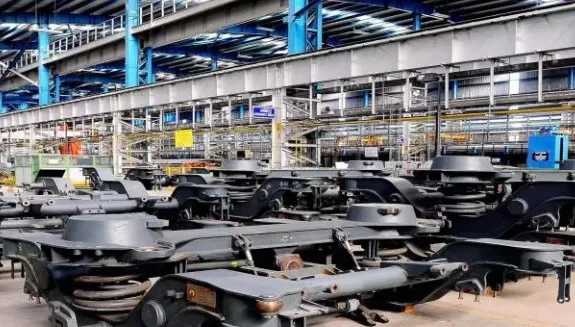“Are we going to be happy being delivery boys and girls… Is that the destiny of India… this is not startup, this is entrepreneurship… What other side is doing — robotics, machine learning, 3D manufacturing and next generation factories “, said Piyush Goyal at the Startup Mahakumbh.
In a sharp critique of India’s startup ecosystem, Union Commerce Minister Piyush Goyal said while many startups in the country were overly focused on food delivery and betting and fantasy sports apps, those in China were working on EV, battery tech, semiconductors and AI.
“What are India’s startups of today? We are focused on food delivery apps, turning unemployed youths into cheap labour so the rich can get their meals without moving out of their house,” Goyal said.
India currently has approximately 7.7 million delivery workers, a number expected to rise to 25 million by 2030. The average age of delivery workers has shifted to the mid-30s, as companies increasingly prefer mature, experienced individuals. Notably, over one-third of these workers are graduates, highlighting the high level of educational qualification among them.
Most of the Gig workers cite the lack of employment opportunities in the country as one of the reasons for working in the platform economy. Many work in food delivery and other app-based jobs, often working for less than the minimum wage and without rights like sick leave or weekly paid day-off. According to a Business Standard report, published in 2019, the unemployment rate was at a 45-years high in 2017-18. While quoting an National Sample Survey Office (NSSO) official, the report alleged that the government is withholding the unemployment data because of the approaching 2019 General Election.

Why Less Delivery Startups and More Tech Startups?
India benefits from having more tech startups as not only create high-skill jobs with better pay and career advancement but also drive long-term economic growth and innovation. Unlike food delivery services, which cater to short-term consumer convenience, tech startups have the potential to solve real-world problems, boost exports, and make India more competitive on the global stage. Tech startups can diversify the economy and contribute significantly to GDP growth, aligning with government initiatives like the Startup India Scheme.
As of June 2024, India has over 140,803 recognized startups, according to DPIIT data. However, the exact number of non-tech startups is not explicitly stated. In 2018, it was reported that around 8,900 to 9,300 startups were technology-led out of about 50,000 total startups.
In contrast, the food delivery sector is highly saturated, with many startups facing operational challenges and struggling to differentiate themselves, leading to financial instability. While food delivery startups are merely creating delivery boys, focusing on tech startups offers higher scalability and growth potential, making them more attractive for investment and sustainable economic development. This shift can help India build a more resilient and innovative economy.
Comparative Analysis with China: Deep-Tech Focus
China’s strategic focus on deep-tech industries such as electric vehicles (EVs), semiconductors, and artificial intelligence (AI) has significantly contributed to its technological advancements. Here’s how these areas have propelled China forward and what lessons India can learn from this approach:
China’s Advancements in Deep Tech
- Electric Vehicles (EVs):
- Innovation and Production: China is at the forefront of the global EV and EV battery industries, producing nearly two-thirds of the world’s EVs and more than three-quarters of EV batteries. Chinese companies like BYD and Li Auto are innovating rapidly in vehicle technology, including autonomous driving and digital features.
- Technological Integration: The integration of AI in EVs, particularly in autonomous driving, has enhanced China’s competitive edge in the global market.
- Semiconductors:
- Domestic Development: Despite facing challenges due to U.S. export controls, China has made significant strides in semiconductor design and production. Companies like Huawei and SMIC have developed competitive logic chips, and China is moving towards self-sufficiency in chip production.
- Strategic Importance: Semiconductors are crucial for AI systems, and China’s efforts to develop indigenous technologies aim to reduce dependence on international suppliers.
- Artificial Intelligence (AI):
- AI in Industries: AI is being extensively applied in healthcare, automotive, and other sectors, driving innovation and efficiency. China’s AI development plan emphasizes core technologies like intelligent computing chips and systems.
- Global Competitiveness: China’s AI advancements have positioned it as a global leader, with significant investments in AI research and development.
Lessons for India
- Strategic Focus on Deep Tech:
- Prioritize Innovation: India should prioritize deep-tech innovation over gig economy startups. This involves investing in AI, EVs, and semiconductors to create a more balanced startup ecosystem.
- Government Support: The government can play a crucial role by providing incentives, funding, and infrastructure support for deep-tech startups.
- Education and Training:
- Skill Development: India needs to enhance its educational programs to equip the workforce with skills in emerging technologies. This will help in developing a talent pool capable of driving innovation in deep-tech sectors.
- Collaboration with Industry: Encourage partnerships between educational institutions and industry leaders to ensure practical application of skills learned.
- Investment in Infrastructure:
- R&D Facilities: Establishing state-of-the-art R&D facilities can attract foreign investment and encourage domestic innovation. This is crucial for developing indigenous technologies in AI, EVs, and semiconductors.
- Policy Reforms: Implement policy reforms that support the development of deep-tech industries, such as tax incentives and streamlined regulatory processes.
ALSO READ : Indian Tech Startups Rebound in 2024 with 23% Funding Surge

























